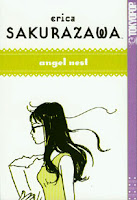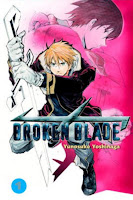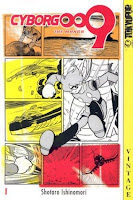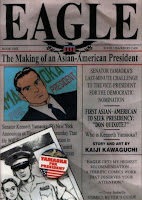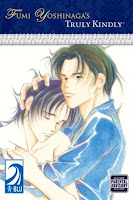My News and Reviews
Last week was the Naoki Urasawa Manga Moveable Feast. Organization Anti-Social Geniuses did a great job hosting. For my contribution to the Feast, I reviewed the first of Urasawa’s works to be released in English: Pineapple Army. The volume collects ten stories from the eight-volume series Pineapple Army written by Kazuya Kudo and illustrated by Urasawa that focuses on the exceptionally capable Jed Goshi, a Japanese-American Vietnam war veteran. As promised, I also posted a review of Persona: A Biography of Yukio Mishima by Naoki Inose and Hiroaki Sato. It is easily the most comprehensive single-volume work on Mishima currently available in English. It’s a huge volume, but well worth the effort it takes to read it if, like me, you have an established interest in Mishima.
I’ve made a few updates to the Resources page. The Manga Critic has now been absorbed by Manga Bookshelf and so no longer has its own entry. I did come across a newish blog that looks to be quite interesting, What Is Manga?, which is described as “a regular interrogation of what Japanese “comics” are and are not.” A couple of publisher websites have also disappeared: Bandai Entertainment and Icarus Comics. However, I did add Drawn and Quarterly (which was missing for some reason) and the newly established Chromatic Press to the list.
Elsewhere online, Gen Manga has launched a Kickstarter project for the print run of Sorako, one of the magazine’s stronger stories. A fascinating conversation between Igarashi Daisuke (Children of the Sea, etc.) and Taiyo Matsumoto (Tekkon Kinkreet, etc.) made its way onto Tumblr. The newest installment of Jason Thompson’s House of 1000 Manga focuses on Kingyo Used Books which unfortunately (but probably not surprisingly) has been canceled in English. I was also sad to learn about the passing of Donald Richie, an influential writer and lover of Japan.
Quick Takes
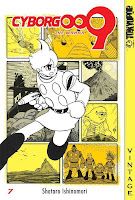 Cyborg 009, Volume 7 by Shotaro Ishinomori. There is something about Cyborg 009 that makes me really happy to read it. Volume seven concludes part five of the series, which features the showdown between the zero-zero cyborg prototypes and the Myutos cyborgs. Initially I wasn’t overly impressed by the Myutos cyborgs. Their designs are inspired by Greek mythology, which seemed to be a rather strange and not entirely convincing combination. However, I quickly got over it and just enjoyed the story and its nearly non-stop action. The fights don’t just boil down to who happens to have the better or stronger superpower. Cleverness, teamwork, and character are just as important.
Cyborg 009, Volume 7 by Shotaro Ishinomori. There is something about Cyborg 009 that makes me really happy to read it. Volume seven concludes part five of the series, which features the showdown between the zero-zero cyborg prototypes and the Myutos cyborgs. Initially I wasn’t overly impressed by the Myutos cyborgs. Their designs are inspired by Greek mythology, which seemed to be a rather strange and not entirely convincing combination. However, I quickly got over it and just enjoyed the story and its nearly non-stop action. The fights don’t just boil down to who happens to have the better or stronger superpower. Cleverness, teamwork, and character are just as important.
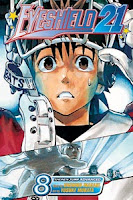 Eyeshield 21, Volumes 8-10 written by Riichiro Inagaki and illustrated by Yusuke Murata. Eyeshield 21 is definitely not the most realistic sports manga. Although there are a few serious-minded themes, Inagaki and Murata revel in the more absurd and humorous elements of the series. I think that’s really what makes the series work for me. That and Murata’s dynamic and engaging artwork. These three volumes wrap up the America story arc with the Deimon Devil Bats facing off against the NASA Aliens. Eventually the team ends up in the United States for a few days of utterly ridiculous summer training. Yes, Eyeshield 21 is over-the-top and hardly believable, but it is highly entertaining.
Eyeshield 21, Volumes 8-10 written by Riichiro Inagaki and illustrated by Yusuke Murata. Eyeshield 21 is definitely not the most realistic sports manga. Although there are a few serious-minded themes, Inagaki and Murata revel in the more absurd and humorous elements of the series. I think that’s really what makes the series work for me. That and Murata’s dynamic and engaging artwork. These three volumes wrap up the America story arc with the Deimon Devil Bats facing off against the NASA Aliens. Eventually the team ends up in the United States for a few days of utterly ridiculous summer training. Yes, Eyeshield 21 is over-the-top and hardly believable, but it is highly entertaining.
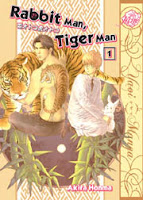 Rabbit Man, Tiger Man Volume 1 by Akira Honma. After rescuing the life of Nonami, a yakuza boss, timid Uzuki suddenly discovers that he’s caught the attention of a very dangerous man. Admittedly, the basic premise of the manga isn’t particularly original; I’ve read plenty of other boys’ love stories with a similar setup. Even so, Rabbit Man, Tiger Man has a nice mix of humor and drama and I’m quite fond of the characters. I particularly liked Nonami. He’s a tough guy, but he also has a very sweet nature. His underling Taka is pretty great, too. I actually quite enjoyed this first installment of Rabbit Man, Tiger Man. I’ll most likely be picking up the next volume at some point.
Rabbit Man, Tiger Man Volume 1 by Akira Honma. After rescuing the life of Nonami, a yakuza boss, timid Uzuki suddenly discovers that he’s caught the attention of a very dangerous man. Admittedly, the basic premise of the manga isn’t particularly original; I’ve read plenty of other boys’ love stories with a similar setup. Even so, Rabbit Man, Tiger Man has a nice mix of humor and drama and I’m quite fond of the characters. I particularly liked Nonami. He’s a tough guy, but he also has a very sweet nature. His underling Taka is pretty great, too. I actually quite enjoyed this first installment of Rabbit Man, Tiger Man. I’ll most likely be picking up the next volume at some point.
 VS Aliens by Yu Suzuki. In addition to being one of Gen Manga’s debut stories, VS Aliens was also the first story in the magazine to be collected in its entirety in a single volume. Unlike a few of the other Gen Manga collections, there is no additional material included in VS Aliens that didn’t originally appear during its initial serialization. One day, Kitaro is approached by Segawa, one of his classmates, who seems to be convinced that another girl in their class, Sakuma, is an alien. Not wanting to hurt either of the girls’ feelings, Kitaro tries his best to figure out what’s going on. But that may turn out to be a little more difficult than he realizes. VS Aliens is a rather silly manga but an enjoyable piece of fluff and an amusing, quick read.
VS Aliens by Yu Suzuki. In addition to being one of Gen Manga’s debut stories, VS Aliens was also the first story in the magazine to be collected in its entirety in a single volume. Unlike a few of the other Gen Manga collections, there is no additional material included in VS Aliens that didn’t originally appear during its initial serialization. One day, Kitaro is approached by Segawa, one of his classmates, who seems to be convinced that another girl in their class, Sakuma, is an alien. Not wanting to hurt either of the girls’ feelings, Kitaro tries his best to figure out what’s going on. But that may turn out to be a little more difficult than he realizes. VS Aliens is a rather silly manga but an enjoyable piece of fluff and an amusing, quick read.

